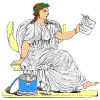|
Saxon Uniforms in
the Battle of Fraustadt
Apart from the artillery all
Saxon regiments had red coats and with a few exceptions white or grey
stockings. In addition, the cuirassiers also had a buff coat, which they
wore in battle. Each regiment had a distinctive colour on their facings which
meant that there were many different shades of blue and yellow in the Saxon
army.
It is doubtful whether the
Saxon army at this time had completed a shift from wide-brimmed hats to
tricornes. The transition is said to have been slow and the tricorne
probably did not become standard until at least 1707 when the army was
reorganised. The regiments below are depicted wearing both types of hat, but
the distribution is random and not based on specific information from any
sources (it's the regiments that were disbanded or received new uniform
colours in 1707 which on this page have been fitted with older hats while
the others have tricornes).
Garde du Corps was a special
elite corps consisting of drabants, carabiniers, dragoons and horse
grenadiers
(all with a separate uniform). They participated in the battle of Fraustadt
with only one squadron, probably the dragoons who had light blue facings.
The cuirassier and dragoon recruits were not proper regiments, just
temporary formations created of recruits intended for regiments further east in Poland.
These recruits may have been dressed in grey fatigues. The infantry had two
grenadier battalions. The first was Joyeuse's battalion and the other was
one of the guard battalions (Leibgarde zu Fuss).
Right (South) Wing Cavalry
|
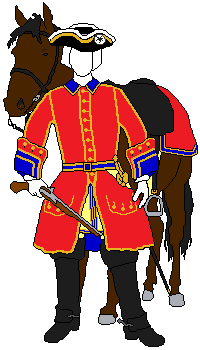
Chevaliergarde
(1 squadron) |
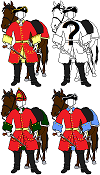
Garde du Corps
(1 squadron) |
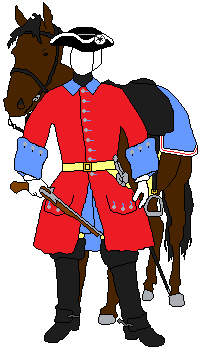
Bayreuth's
Dragoon Regiment
(4 squadrons) |
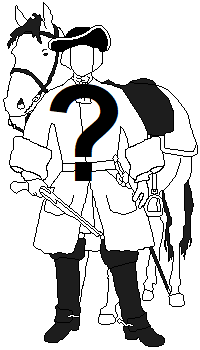
Cuirassier recruits
(4 squadrons) |

Fürstenberg's
Dragoon Regiment
(4 squadrons) |
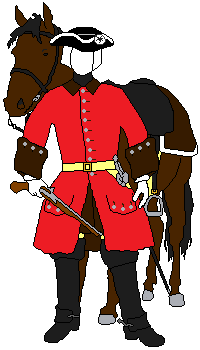
Wrangel's
Dragoon Regiment
(4 squadrons) |
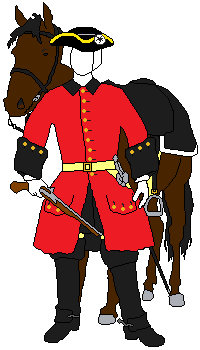
Goltz'
Dragoon Regiment
(4 squadrons) |
|
|
Centre Infantry
(the battalions formed a
rectangle except for Wostromirsky which covered a gap between one flank
and a lake)
Front Line
|
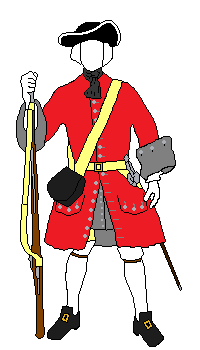
Wostromirsky
(1 battalion)
(light blue facings 1707) |
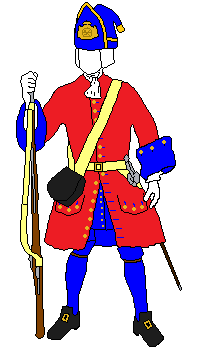
Joyeuse
(1 battalion) |
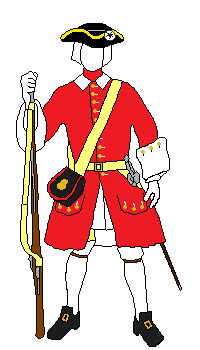
Leibgarde zu Fuss
(1st battalion) |

Leibgarde zu Fuss
(2nd battalion) |
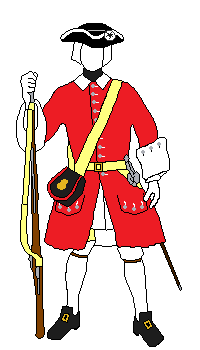
Leibgarde zu Fuss
(3rd battalion) |
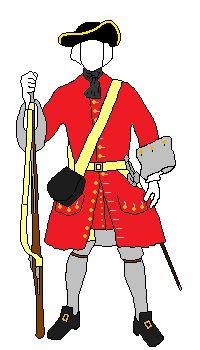
Drost
(1 battalion) |
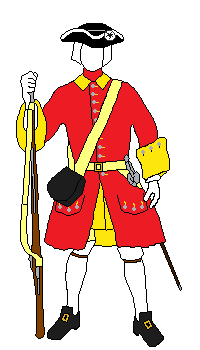
Kurprinz
(1st battalion) |
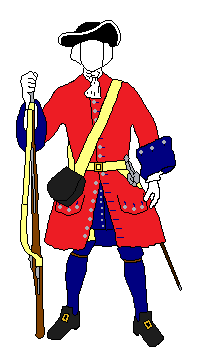
Fürstenberg
(1st battalion) |
|
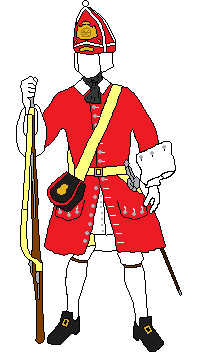
Leibgarde zu Fuss
(grenadier battalion) |
(green facings 1707) |
|
The order of battle follows Oskar Sjöström's book "Frasutadt
1706 - Ett fält fargarat rött" with the exception of an obvious
mistake where a Russian battalion (Bilits) has been duplicated and also
become a Saxon battalion. The Saxon battalion missing from Sjöström's
order of battle is Reuss, but instead of just replacing Bilits with
Reuss, I have also changed places with Biron. This follows the order of
battle in "Karl XII på slagfältet" which, however, differs from
Sjöström on several other points in addition to this one.
Rear Line
|

Malleraque
(1st battalion) |

Malleraque
(2nd battalion) |
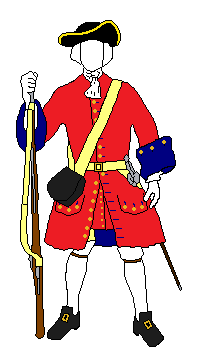
Reibnitz
(1 battalion) |

Kurprinz
(2nd battalion) |

Fürstenberg
(2nd battalion)
(green facings 1707) |
Centre
(continuation) |
|
Left (North)
Wing Cavalry
|
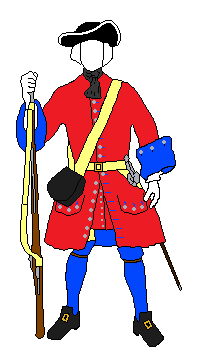
Venediger
(1 battalion) |
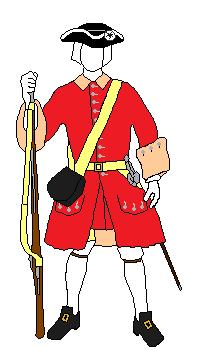
Königin
(1st battalion) |

Fleming's
Dragoon Regiment
(4 squadrons) |
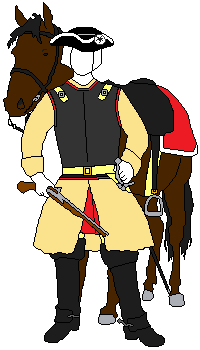
Beusts'
Cuirassier Regiment
(4 squadrons) |
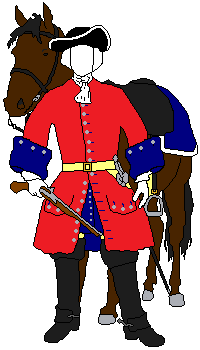
Dünewald's
Dragoon Regiment
(4 squadrons)
(light green facings 1707) |

Winckel's
dragoon recruits
(4 squadrons) |

Jordan's
Dragoon Regiment
(4 squadrons) |
|
|

Königin
(2nd battalion) |
Artillery Regiment
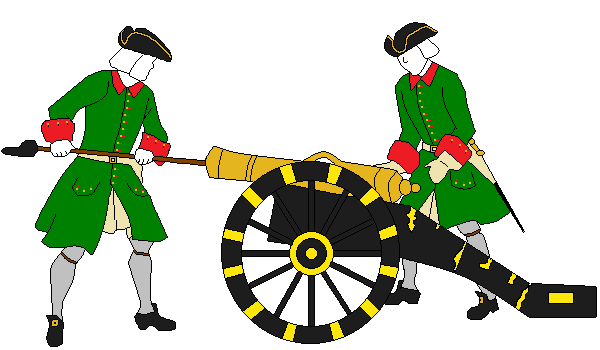
300 men and 32 guns |
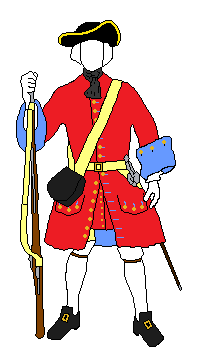
Reuss
(1 battalion) |
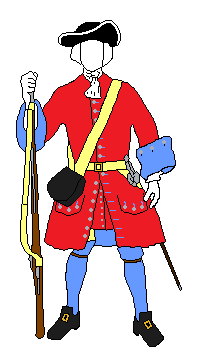
Biron
(1 battalion) |
There are also pages covering the Russians and
Swedes in the battle of Fraustadt. |
